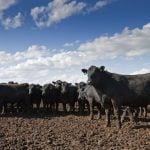
Tag Archives Environment
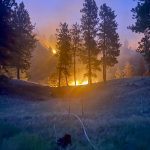
A rangeland up in flames
Another record-breaking summer of wildfires in B.C. suggests the need for a new approach to fire prevention and management
The wildfires that upended Chris Haywood-Farmer’s world last summer are likely still smouldering this winter, deep in the roots of the charred rangeland. For safety reasons, parts of this vast Crown range were closed for public recreation throughout the fall, a reminder of what the fourth-generation rancher and his family faced earlier that year. “We […] Read more
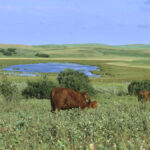
Opinion: Wetlands and resilient landscapes. A match made in Canada
Over the past year, Canadians have felt the first-hand effects of climate change more than ever. Scorching temperatures, droughts, wildfires and floods – all of unforeseen magnitudes – have claimed homes and livelihoods while ravaging the environments they have impacted. Among those who experience the effects of climate change most acutely are farmers. Unfortunately, this […] Read more

No more baby steps
From the Ground Up with Steve Kenyon
The light bulb did not get invented by incrementally increasing the brightness of the candle. This is a quote attributed to Oren Harari. What he is referring to is the fact that most breakthroughs do not come from aiming for incremental improvements. We need big steps that come from complete mindset changes. For example, using […] Read more
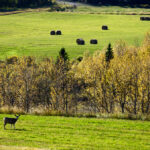
Moving from planning to action on corporate sustainability
Officials from non-profits, animal health, foodservice and the processing industry discuss the challenges of setting and implementing corporate sustainability goals
When World Wildlife Fund plans to act on its sustainability goals for the Northern Great Plains, partnering with stakeholders in the beef value chain pushes these initiatives further. World Wildlife Fund (WWF) considers the Northern Great Plains to be a critical ecosystem, and to meet its place-based conservation goals, working with beef producers on the […] Read more

Opinion: No one can put a price on nature, but we ignore its value at our peril
As costs of climate change climb, it’s time to recognize Canada’s wetlands for their economic worth
Canada’s wetlands provide billions of dollars of economic value to communities every year. That’s billion, with a “b.” From flood and drought mitigation to carbon storage to water purification and protection from sea-level rise, wetlands deliver important infrastructure functions, naturally. But the worth of these important ecosystems fails to hit provincial and municipal balance sheets. […] Read more
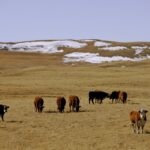
Comment: The time is now
Last month, I touched on the opportunity to flip discussions around methane and the beef industry into a positive. However, it occurred to me afterward that some readers might have walked away with the impression that I have no qualms about the potential effect of government regulations and policy around methane on the beef industry. […] Read more

Using natural advantages for a sustainable cow-calf operation
The 2021 TESA recipients discuss managing risk by working with the environment and the importance of building trust with customers
In a place described by poets as “the forest primeval,” Dean and Catherine Manning have built a business to be proud of in Nova Scotia’s agricultural paradise. With a unique climate and fertile farmland developed from salt marshes more than 300 years ago, all kinds of agricultural production flourish near the Minas Basin, from orchards […] Read more

CRSB launches update to National Beef Sustainability Assessment
The Canadian Roundtable for Sustainable Beef (CRSB) is calling on beef producers to contribute to sustainability benchmarking data collection by filling out a survey (available in English and French). What is the National Beef Sustainability Assessment? When the CRSB was established, it adopted the definition and guiding principles of beef sustainability from the Global Roundtable […] Read more
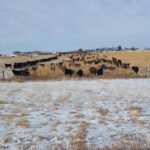
TESA 25: Triple V Ranch believes in being in tune with nature
The Environmental Stewardship Award (TESA) celebrates its 25th anniversary this year. Since 1996, TESA has been recognizing beef producers from across the country who go above and beyond standard conservation practices to care for their land and environment. Each year, producers are recognized at the regional level. A national TESA winner is then chosen from […] Read more

TESA 25: Quebec 2021 Environmental Stewardship Award recipient
The Environmental Stewardship Award (TESA) celebrates its 25th anniversary this year. Since 1996, TESA has been recognizing beef producers from across the country who go above and beyond standard conservation practices to care for their land and environment. Each year, producers are recognized at the regional level. A national TESA winner is then chosen from […] Read more



